
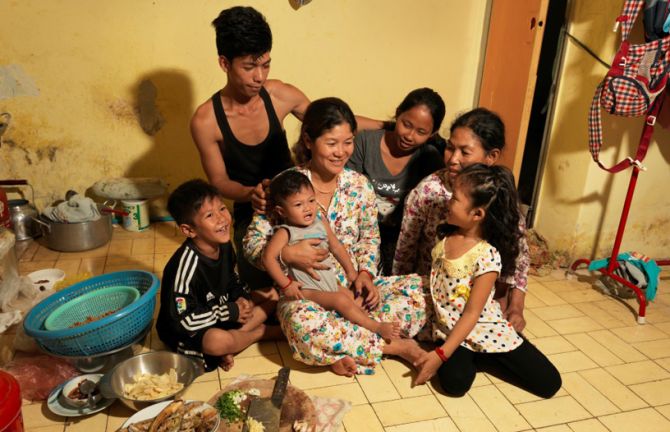
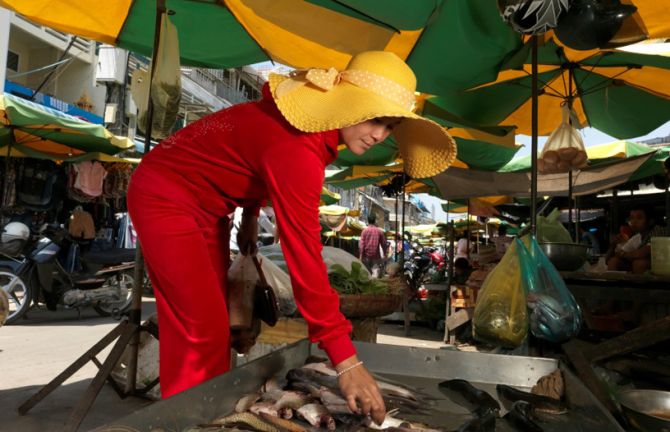
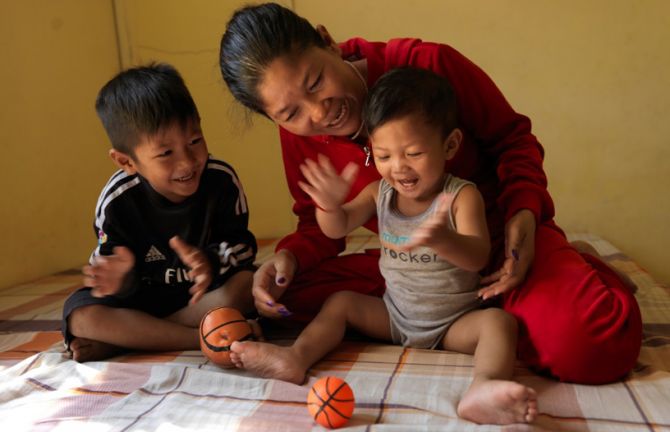
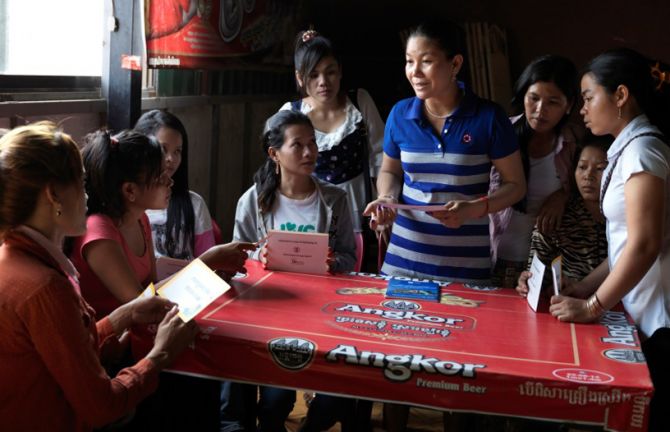
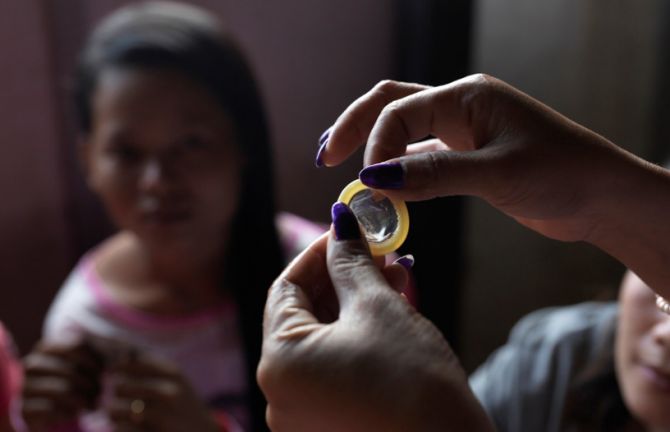
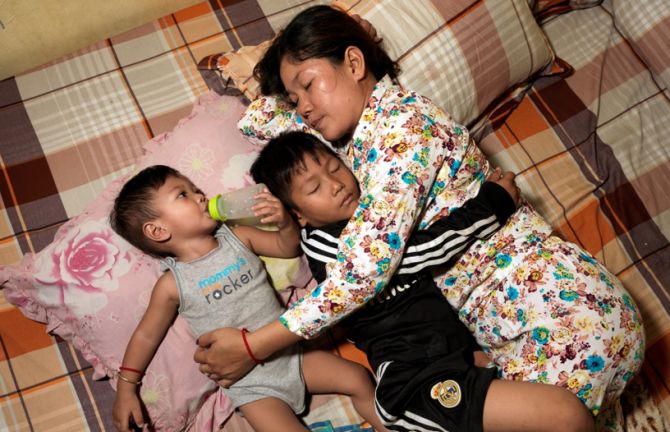
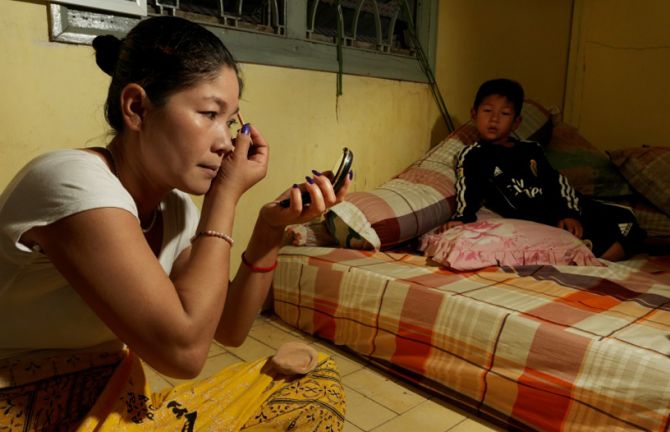
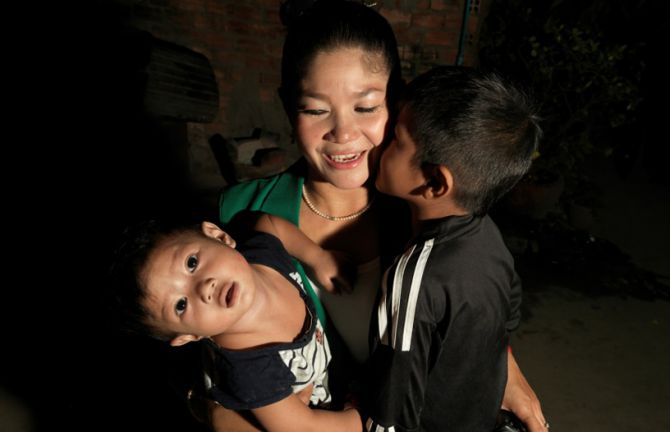
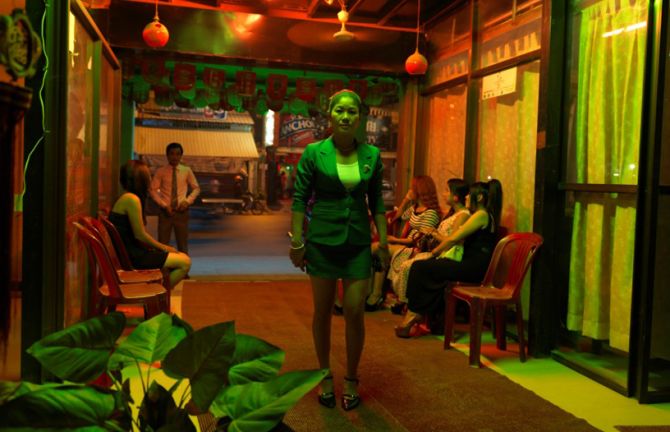
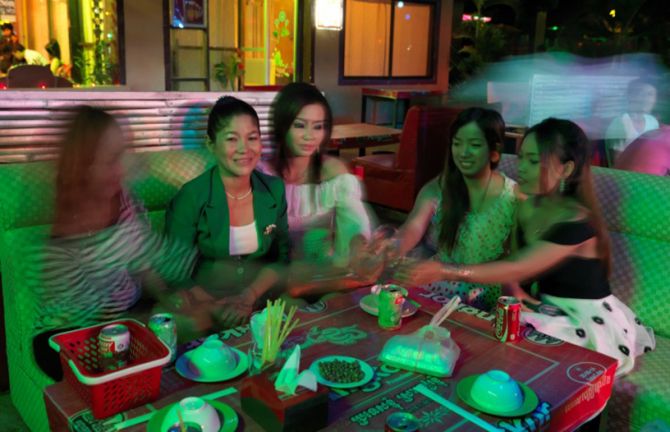
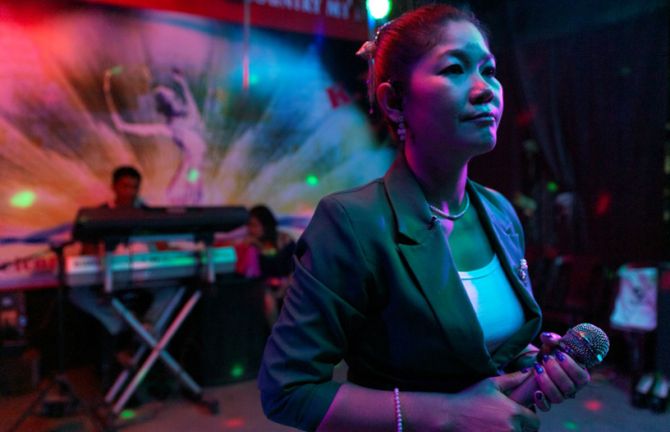
Feature Story
Cambodian entertainment workers welcome new regulation on labour rights
12 November 2014
12 November 2014 12 November 2014When Sopheap comes back from work at 2 a.m., she tiptoes around her one-room flat, because everyone is sleeping. The 35-year-old mother slides into the bed she shares with her two young sons and catches a few hours of sleep, before getting up to make breakfast.
“I’m the family breadwinner. I support my boys, my niece and my mother,” said Sopheap. “I also send money home to my brothers and sisters.”
Like other mothers working the night shift, she enjoys being able to spend her days in quality time with her children: playing, cooking and caring for them. At night her own mother babysits.
Sopheap is an entertainment worker, who spends her evenings in a beer garden in Phnom Penh. She got into the business after she moved to the Cambodian capital seven years ago—a far cry from her job as a fruit and vegetable seller in the local market in her home town.
“I make about US$ 120 a month now, that’s a lot more than what I brought in as vendor. Before, I couldn’t make ends meet,” said Sopheap.
Like many other Cambodian entertainment workers, with her finances precarious she decided to head for the capital. She says she was lucky because she was pretty and liked to sing. Her first job was entertaining clients in a restaurant and then she moved to her current establishment a year ago.
“It’s not easy. You know sometimes the men force us to drink. They harass us and can even become violent. But I’m lucky because my boss is understanding. If we aren’t feeling well, he even lets us take sick leave,” said Sopheap.
Sick leave is one of the basic worker rights recognized by Cambodia’s Labour Law, but until recently few entertainment workers were given that benefit. Now sick leave is recognized as a right for all entertainment workers. This comes following last month’s decision by the Cambodian Ministry of Labour and Vocational Training to issue a new ministerial regulation that calls for the protection of the occupational safety and health and labour rights of all entertainment workers. The term entertainment workers applies to a range of people in Cambodia who work in hotels, restaurants, guesthouses, karaoke parlours, discotheques, beer gardens, casinos and massage parlours, among other settings. While Sopheap says she does not engage in sex work, it is generally recognized that the job can lead to paid sex.
The move was welcomed by trade union representatives. “The government has finally recognized that entertainment workers are actually workers like all others and should be protected under labour law,” said Chan Dyna, representative of the National Entertainment Workers’ Network.
Many entertainment workers face poor working conditions, with excessively long hours, low pay and sexual harassment. Employers also often demand that their employees pay penalties when they are late or unexpectedly sick, trapping workers as they try to pay off their debts. The new regulations prohibit such penalties, as well as forced labour of any sort, and forced alcohol and drug consumption and abortions, helping to build an enabling environment for entertainment workers to receive health education and access to health services.
The International Labour Organization (ILO) is working with the Cambodian Government to train all labour inspectors on the new regulations by June 2015. The training programme includes not only education in occupational safety and labour rights but also HIV prevention and reducing stigma and discrimination of entertainment workers living with HIV.
“This latest positive development in labour rights for entertainment workers really evolved out of all the work that was done around HIV,” said Richard Howard, Senior Specialist on HIV and AIDS at the Regional Office for Asia and the Pacific of the ILO.
Through their participation in HIV programmes, entertainment workers learned not only to prevent and mitigate the impact of HIV, but to call for their sexual and reproductive rights, as well as social protection.
“The HIV movement helped empower women. It built the foundation for solidarity and became a platform for broader rights,” said Mr Howard.
Sopheap is also a peer outreach worker and shares information on HIV with other entertainment workers. “We face a lot of stigma and discrimination. I hope the new guidelines will encourage people to respect us as professional women,” she said.



